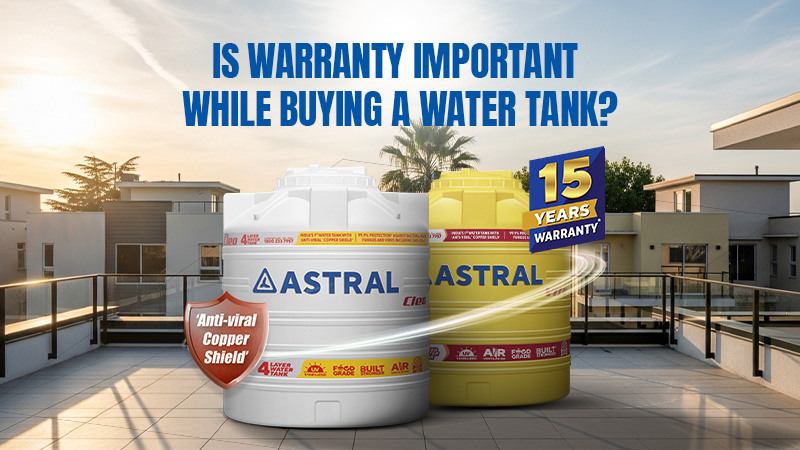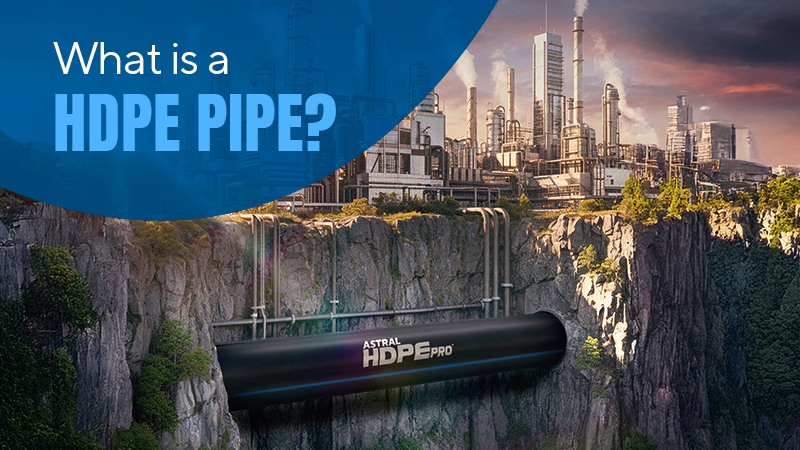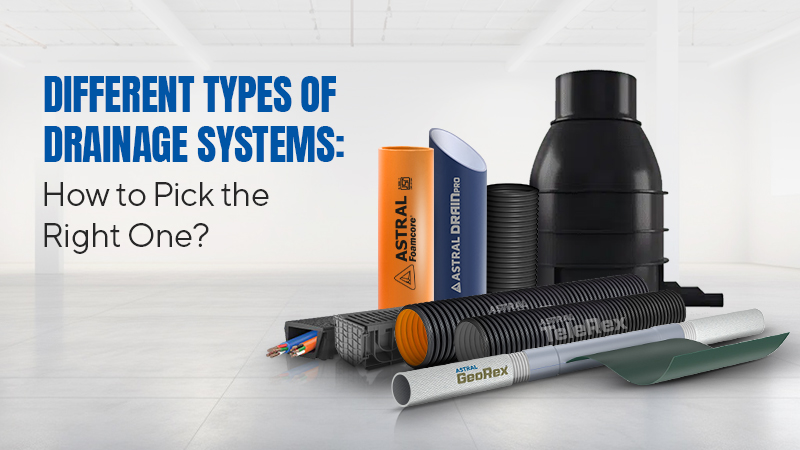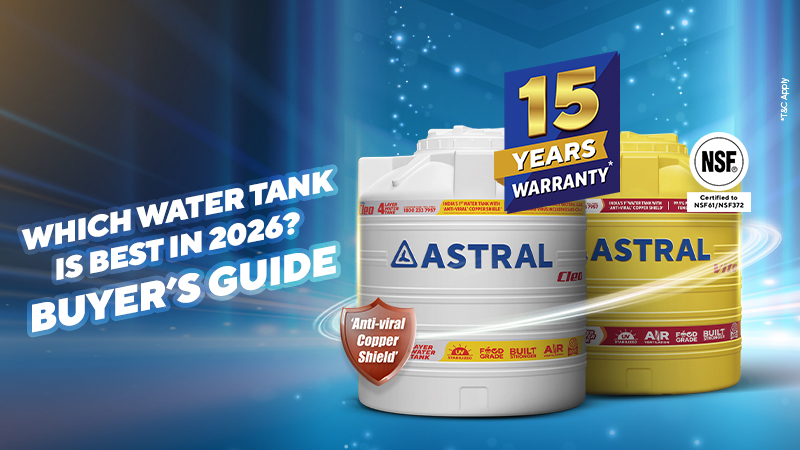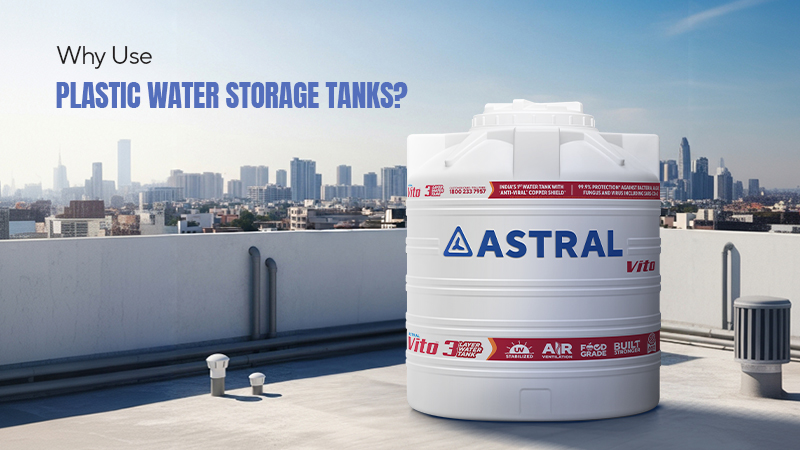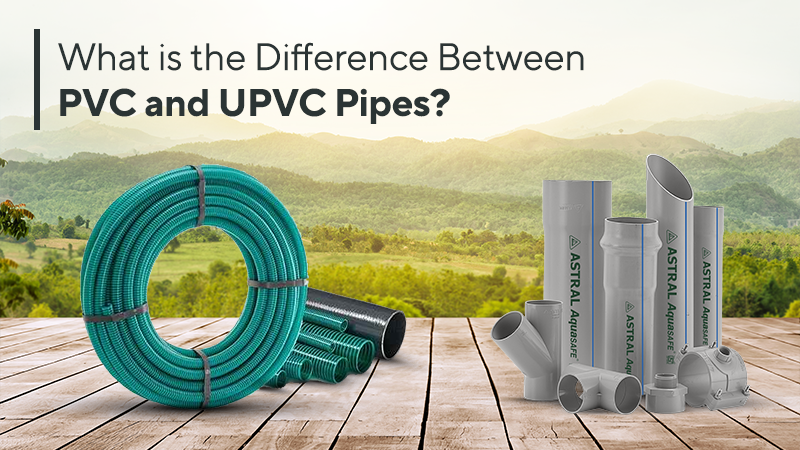
14 May 2025
What is the Difference Between PVC and UPVC Pipes?
When planning a plumbing system, you might come across the terms PVC and uPVC pipes. While both are made from Polyvinyl Chloride, the way each one performs is quite different. These differences can affect everything from installation and durability to long-term maintenance and cost.
PVC and uPVC are two distinct product categories within the broader family of Polyvinyl Chloride pipes. PVC pipes are commonly used in non-pressurised systems like drainage or irrigation, while uPVC pipes are made for far more demanding setups like high-pressure water supply and outdoor installations. Their differences in material composition, rigidity, and resistance to heat or chemicals define how and where they are used. PVC and uPVC pipes are not interchangeable options, as they are built for specific purposes and have specific roles in residential, agricultural, and industrial environments.
In this article, we will discuss the differences between PVC and uPVC pipes, their unique properties, and how they are used in various industrial projects.
What is PVC Pipes?
PVC (Polyvinyl Chloride) is a synthetic plastic polymer made through the polymerisation of vinyl chloride monomers. PVC pipe is one of the most commonly used materials in plumbing as they are compact and easy to install. PVC pipes are widely used in residential plumbing systems, particularly for drainage, irrigation, and cold water supply lines. These plumbing pipes are also corrosion-resistant, durable, and affordable.
One of the significant advantages of PVC pipes is their ease of installation. Due to their flexibility, they are ideal for situations where pipes need to be curved or adjusted to fit a particular space.
The material is available in various sizes and is suitable for various applications, from small home projects to larger industrial systems. Despite their affordability, PVC pipes are strong enough for low-pressure systems and non-potable water applications, ensuring reliable performance without breaking the bank.
What is UPVC Pipes?
uPVC (Unplasticised Polyvinyl Chloride) pipes are made from the same base material as PVC but without the addition of plasticisers or softeners. This key change in composition results in a more resilient and durable material. As a result, uPVC pipes are better suited for high-pressure applications where strength and resistance to environmental factors are vital. This makes it an optimum choice for high-pressure systems like water supply lines, sewage systems, and industrial plumbing.
A standout feature of uPVC pipes is their resistance to UV radiation. Unlike PVC, which can degrade over time when exposed to sunlight, uPVC retains its strength and integrity, even in outdoor or underground installations. For those wondering what is uPVC pipes, this material is particularly suited for drinking water systems due to its resistance to chemical degradation.
If your project demands a material that can handle extreme temperatures, high pressure, and harsh environments, uPVC is the most reliable and durable option.
Difference Between PVC and UPVC Pipes
While PVC and uPVC pipes are made from the same base material, they have key differences that make them suited for different applications. Here is a quick rundown:
|
Property |
PVC Pipes |
uPVC Pipes |
| Composition | Flexible due to added plasticisers | Rigid, with no softening agents |
| Flexibility | Flexible, ideal for curved installations | Rigid, ideal for high-pressure systems |
| Strength | Less strong, suitable for low-pressure applications | Stronger, ideal for high-pressure systems |
| Temperature Resistance | Can handle temperatures up to 60°C | Can handle temperatures up to 80°C, better for varying climates |
| Chemical Resistance | Good chemical resistance, lower than uPVC | Excellent chemical resistance, ideal for potable water and transporting chemicals |
| UV Resistance | Can degrade when exposed to UV over time | Superior resistance to UV, great for outdoor use |
| Water Flow Efficiency | Moderate water flow, some friction | Smooth surface, better water flow with less friction |
| Applications | Ideal for drainage, irrigation and non-potable systems | Best for water supply, high-pressure and chemical transport systems |
In the PVC pipes vs uPVC pipes comparison, it is evident that uPVC pipes excel in high-pressure and outdoor environments, while PVC pipes are ideal for comparatively lighter tasks.
PVC Pipes vs uPVC Pipes Applications Across Different Industries
When deciding between PVC pipes vs uPVC pipes, understanding the application is imperative to making a wise choice. PVC and uPVC pipes are used in a wide variety of industries according to their demands.
1. Plumbing and Residential Use
PVC pipes are common in homes for water supply, waste management, and irrigation systems. They are easy to install and perfect for cold water systems. uPVC pipes, on the other hand, are used in homes for high-pressure systems like potable water supply, where strength and durability are key.
2. Agriculture and Irrigation
PVC pipes are widely used for irrigation because they are easy to install, lightweight, and flexible. uPVC pipes are used in high-pressure irrigation systems and underground water distribution, offering greater durability and resistance to environmental factors.
3. Water Supply and Chemical Transport
uPVC pipes are often used for transporting drinking water and chemicals due to their resistance to chemicals and UV degradation. PVC pipes are typically used in less demanding applications like drainage and wastewater systems.
4. Fire Safety Systems
Both PVC and uPVC pipes play a role in fire safety. PVC pipes are used for fire sprinkler systems, while uPVC pipes are preferred for high-pressure systems that require strength and resistance to heat.
5. Industrial Applications
uPVC pipes are used in industrial settings for transporting chemicals and other corrosive materials, while PVC pipes are used for drainage and waste management.
In the debate of PVC pipes vs uPVC pipes, it is clear that each type has its own strengths. Knowing the distinction between them is key to the long-term success of your plumbing system. Whether using PVC or uPVC, the right material will help you avoid future issues and ensure reliable performance.
Choosing the right pipes ensures reliable and long-term performance. At Astral Pipes, we offer a wide range of reliable, high-quality PVC and uPVC pipes designed to meet all your unique needs. Across residential, commercial, or industrial projects, the right material of pipe will ensure that your system performs smoothly and reliably.
Read our blog on Plastic Pipes vs Copper Pipes: Which One is Better for Plumbing?


